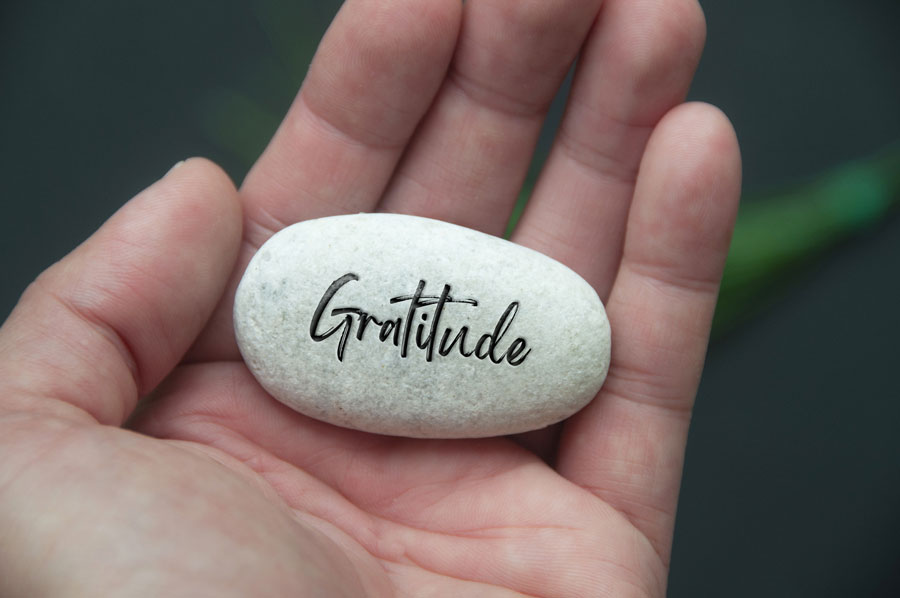Gratitude isn’t something that you may be thinking about right now if you’re just starting the path of getting help for substance use disorder (SUD). You may be afraid, overwhelmed, and uncertain about the future. Yet, if you take a closer look at gratitude and embrace what it can do to foster your success through addiction treatment, you may find there’s plenty to be thankful for.
What Is Gratitude in Recovery
Gratitude is the practice of being thankful. It may not seem important at this moment in your life because your brain feels overrun and overwhelmed by negative thoughts about your circumstances, health, relationships, and even your future. Yet, as you work through your initial weeks in treatment and beyond, you’ll find gratitude has a very strong impact on your recovery journey.
In recovery, focus on having a grateful mindset. Doing so helps to create connections that enable you to overcome your emotions and negative thoughts. When you practice gratitude, you encourage patience, presence, and kindness not just to the world around you but to yourself as well.
Consider the following parts of gratitude and how they can help you improve your outlook:
- Self-understanding: A grateful mindset makes you more aware of your thoughts, feelings, and experiences, which supports emotional responses. It also helps you grow in understanding who you are and what your needs are.
- Emotional regulation: Gratefulness can also help you see things from a different perspective during difficult times. It may also help you foster better-coping mechanisms during the emotional ups and downs you experience in recovery.
- Connections: When you let down the walls to practice gratitude, you’re also creating better and more authentic relationships while forming important networks you can rely on later.
Gratitude is more than just saying you’re thankful. It’s about believing in yourself, your right to enjoy life, your right to be happy and healthy, and your ability to live life in a way that fits your goals.
Developing a mindset of gratitude may help improve mood and minimize anxious feelings. It may also help you relax a bit more easily because you have hope. Developing a mindset of gratitude may also help reduce the impact high stress and anxiety have on your physical health.
How To Develop a Mindset of Being Grateful
During your treatment for drug and alcohol addiction in Chester, VA, our team will work closely with you to uncover all aspects of your needs. We help you build a routine that allows you to strengthen your confidence. You learn how to improve your physical health through stress reduction and eating well. Yet, building a grateful mindset takes some additional work. You can work on it through a few simple steps:
Recognize Where You Are Right Now and Measure Your Progress
Instead of looking back at your history and the pain you are facing from it, consider where you are right now. Perhaps you are navigating the early stages of recovery, but you are in recovery. You may have to work towards new relationships or fixing old ones. You may just feel a bit safer than you did recently. Recognize that where you were is not where you are.
Set some goals for yourself. They could be very straightforward goals such as going to meets each day or every other day. You may wish to give yourself time every morning for meditation. By establishing these goals and reaching them, you build your confidence. That allows you to start focusing on the positive changes you have ahead of you that you’re already starting to experience now.
Find a Way To Express Gratitude Every Day
Each morning, start your day with a statement of affirmation. State, out loud, what you are grateful for in that moment. It may be the extra 10 minutes of sleep you had or that you have a job to go to. Add in anything you can when those days are tough. You may be thankful for just having a place to live or the sound of the birds outside. Whatever you can, show gratitude. This helps to frame the rest of your day in a positive way.
Another core component of your recovery is being present in the here and now. If this is your first year in recovery, it can seem like your path is very long. Yet, instead of looking back and talking about just your past and what happened to you, focus on how you feel in this moment. When a bad thought comes to mind, find a way to reframe it into something positive.
Get the Guidance and Support You Need Along the Way
By working with our Iron Bridge Recovery Center team, you’ll see the power that gratitude can bring into your day. There’s no pressure here, but there are opportunities to grow. Contact us to learn more.





